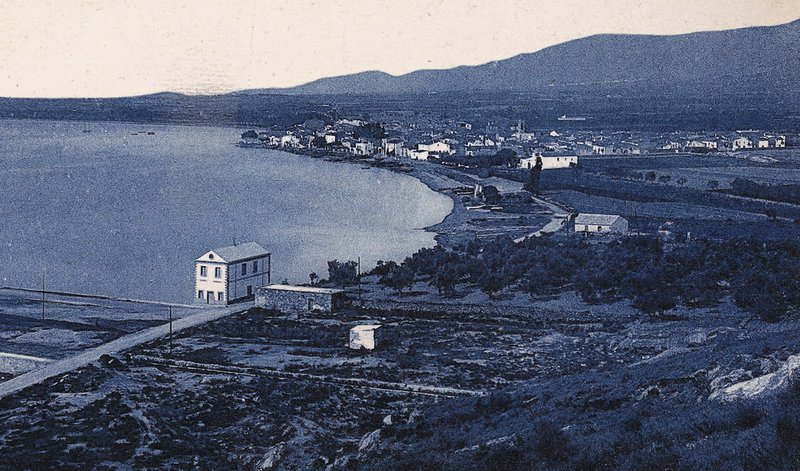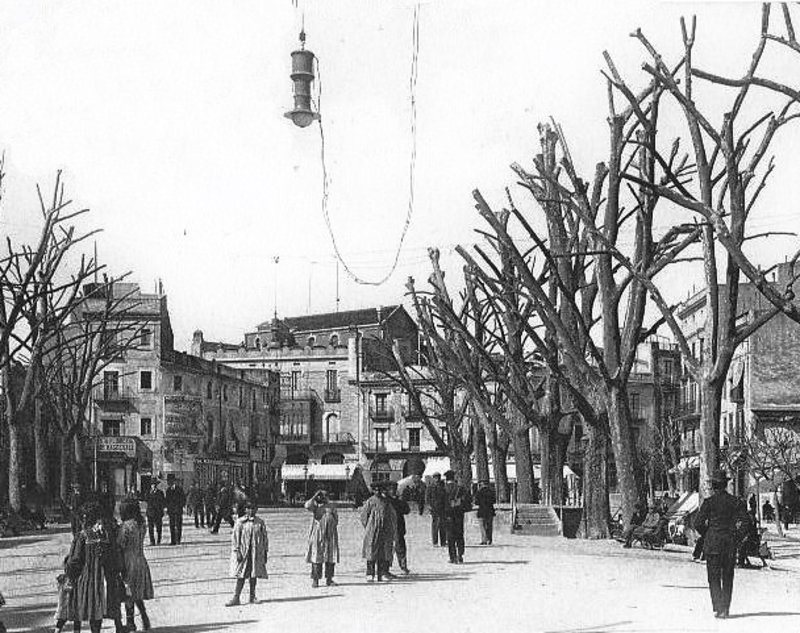Two worlds meet
A wealthy American socialite travels incognito with the Infanta of Spain, brushing shoulders with the peasantry
Women Travellers in Catalan Lands
Beyond the castle there is little to see in the town, but the Infanta was very anxious to take a run of some eighteen kilometres from here to the “Golfa [sic] de Rosas” (Gulf of Roses). Some French admiral had found this a delightful harbor for his ships, and had expatiated upon the beauties of the place to Her Royal Highness, in talking with her in one of the Paris salons, shortly before she left for Spain with me. Soon after we started the wind began to blow furiously, and as the road was built on a high embankment above the fields, I feared that not only would Fusi be blown from his seat, but the whole limousine would be blown off the bank.
When we at last reached this wonderful Gulf of Roses we were rather disillusioned, perhaps because the old admiral, inspired by the Infanta's charming personality, described the harbor too enthusiastically, or perhaps the bleak wind and very early spring prevented the verdure of the shore from properly framing what is really a very pretty little harbor. Indeed, it is by some considered to be one of the best and safest ports of anchor in the whole Mediterranean; and it was in this famous little harbor that King Philip II on his Royal progress to his coronation at Brussels was saluted by the great Andrea Doria, that famous Genoese admiral then in command of the Papal, French and Imperial navies with a fleet of fifty-five galleys. [...] About the shores of the bay was built a quaint little Spanish fishing village, but as the clouds grew considerably blacker, after a turn through the town, in which there was little to see, we started on the return to Figueras, for we planned to go on to Barcelona tonight. “Man proposes,” and you know the rest.
Our journey back was far slower than that going down, for on the way we met all the peasants returning from market day. Most of the carts were drawn by teams harnessed tandem, sometimes two, three or four mules, one after the other, ofttimes a little donkey leading the line; and as nearly every mule and all the donkeys, on seeing what they had never seen before, a limousine automobile, tried to go as rapidly as possible in different directions at the same time, the confusion of the road was made for the time complete.
It does not do here to be angry or impatient with the peasants, for the humblest peasant is in his heart, if not actually a Grandee, always a Spaniard; even the beggars call you “little brother or sister” when they ask for alms; so poor Fusi had to be very patient, and repeatedly drew the car to the side of the road where we stopped until the jumping mules, excited men and screaming children could pass us. F. B. thought the men seemed to be more scared than the animals, and we noticed that when the carts were driven by the stalwart peasant women, there seemed to be much less difficulty in getting the “tartanes” by the machine.
At last we were back at Figueras, and after many inquiries, which met with as many varying replies as to direction, we decided to take the road that the majority of the peasants seemed to think was the right one for Barcelona. We had gone about ten kilometres over a very fair road when we came to a river “which we couldn't get across” (the Nuga) [Muga].
The car has forded many rivers before now, but on examining this rushing stream with its very sandy bed, Fusi declared that if we valued the motor we should not try it. F. B. thought he was rather over cautious, and Fusi obediently started the car a little way down the bank into the river. Several old peasants, in the picturesque red caps, driving their great two-wheeled “tartanas,” smiled derisively at the big machine as they splashed their mules through the stream and went quietly on their way. They confidently assured us that this was absolutely the only highroad to Barcelona, but my own common sense told me that this could not be true. However, what with our excursion to the Gulf of Roses, and the unexpected difficulty of a fordless river, we now found ourselves destined to turn back to Figueras for the night. Besides, it was nearly tea time. Five o'clock and tea are absolutely synonymous in the Infanta's mind, as I have said, but we want to have as much fun and as many experiences as possible, so we decided not to return to the “fonda” of our luncheon, but to try the other one which, on further examination, we found to have a touring club sign over the entrance.
TRYPHOSA BATES- BATCHELLER
Born into an influential Boston family, Tryphosa Duncan Bates (1876-1952) was the only child of Theodore Cornelius Bates, a rich manufacturer and politician, and Emma Frances Duncan. She received a private education both in France and the United States and graduated from Radcliffe College in 1899. In 1904 she married the shoe manufacturer Francis B. Batcheller, adding his name to her maiden name, and they subsequently moved to Paris, where she set up residence.Throughout her life she belonged to several clubs and became well known as a socialite, often hobnobbing with rich people, aristocrats and royalty. Before her return to the United States in 1941, she travelled extensively across Europe, particularly in France, Italy and Spain, producing such travel books as Glimpses of Italian Court life (1906), Italian Castles and Country Seats (1911), and Royal Spain of today (1913). The latter, dedicated to King Alfonso XIII and Queen Victoria Eugenia, is chiefly an epistolary account of her journey Spain in 1910l. Full of cultural and historical facts that sometimes were not altogether accurate, the appeal of this book nevertheless resided, as the Literary Digest and The New York Times observed, in its intimate glimpses into the lifestyle of the Iberian royalty. Bates-Batcheller was certainly well prepared for this adventure: she toured the country in the company of her husband (F. B.), a maid, a chauffeur (Fusi), and especially her friend the Infanta Eulalia of Spain




